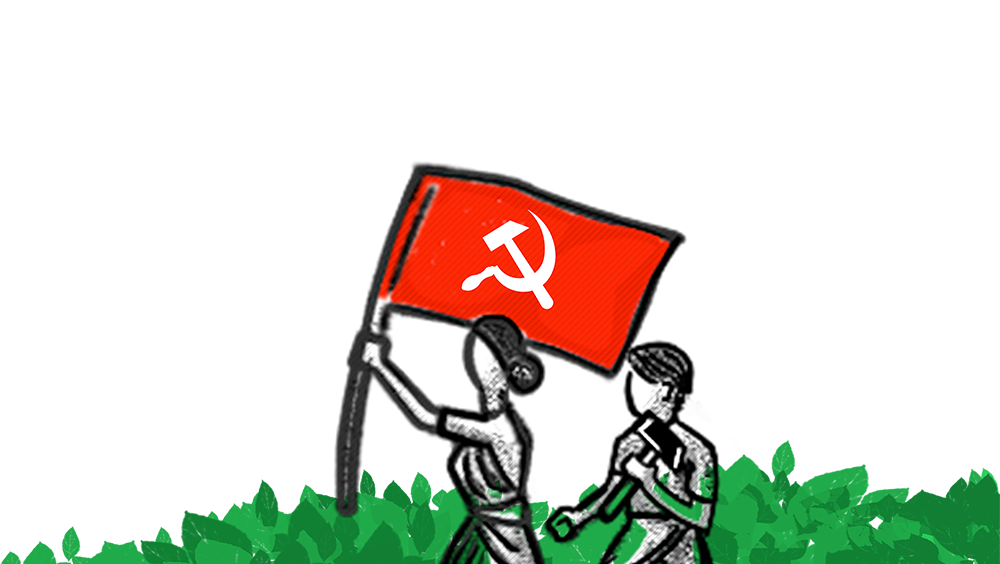Commemorating the 50th anniversary of the promulgation of Emergency
Fifty years have elapsed since the promulgation of Emergency by the Indira Gandhi government. On 26 January 1975, the Constitutional Republic of India observed its twenty fifth foundation anniversary. Just a few months later, on 12 June, 1975 Allahabad High Court found Indira Gandhi guilty of electoral malpractices, and in two weeks the government placed the country under Emergency, effectively suspending the very system of India's parliamentary democracy and the fundamental rights of Indian citizens. Nineteen months into the Emergency, elections were announced in January 1977 and by March 1977 India saw the first defeat of the Congress at the central level and formal lifting of the Emergency. A turbulent time in the history of independent India, and a treasure house of crucial lessons for the future of modern India.
The outcome of the 1977 election is widely perceived as a historic mandate that restored parliamentary democracy in India. With political prisoners released after years of incarceration and press censorship lifted, for a brief period there was indeed a mood of celebration in the country. But it did not take long for the euphoria to evaporate. The army action in the Amritsar Golden Temple codenamed Operation Bluestar, the assassination of Indira Gandhi, and the anti-Sikh pogrom that followed cast a long shadow over India's spirit of national unity and constitutional rule of law. This only went from bad to worse with the Ram Janmabhoomi campaign unleashed by the Sangh brigade, especially Adani's violence-ridden rath yatra and the demolition of the Babri Masjid.
The 2002 Gujarat carnage deepened that wound, and the increasing acquiescence and complicity of the state in the face of this intensified Hindutva offensive triggered a massive erosion of India's parliamentary democratic framework and multi-religious multi-cultural social fabric. Serial enactment of draconian laws in the name of combating terrorism and curbing dissent - from TADA in the 1980s and 90s to POTA in the 2000s to UAPA - eclipsed India's already weak record of constitutional liberties. By the time Modi came to power, India had already begun acquiring several trappings of a hard state amidst a growing clamour for making it even harder. With every passing day in the Modi era, the constitutional underpinnings of the republic are facing a relentless systematic assault.
Each of the epithets enshrined in the constitution as markers of modern India - sovereign, secular, socialist and democratic - has been badly dented, and every promise made to the citizens - justice, liberty, equality and fraternity - has become a prerogative of power and not a universal right that should be available to all without any discrimination. If one has to use the Emergency as a metaphor for suspension of democracy, we can only describe India today as in a permanent state of undeclared but very real Emergency. The event that triggered the Emergency fifty years ago - a High Court convicting a Prime Minister in a case of electoral malpractice, is now an absolute impossibility. The Election Commission today does not heed any complaint of violation of code of conduct against any powerful leader of the ruling party, not to speak of the Prime Minister or a BJP Chief Minister, and it is impossible to expect any court of law to disqualify any top leader of the ruling dispensation in an election petition.
Elections were announced in January 1977 even before the Emergency was formally lifted. There was some lifting of restrictions and a partial release of prisoners and after the unexpected shock defeat, the Emergency was fully lifted. The people of India could electorally prevail and bring an end to the Emergency. Today the current regime is desperate to defy the people and manipulate the electoral process to cling to power by all possible means. Amit Shah has warned India openly that the BJP is determined to rule India not for a five-year term but for fifty long years, and the Election Commission has become a willing accomplice. Every passing day tells us that power in the BJP scheme of things is not to be constitutionally administered according to the tenets of rule of law, institutional scrutiny and federal devolution. In the Modi-Shah-Yogi scheme of governance, power is totally centralised and arbitrary. This is a state of ever-expanding Emergency that seeks to turn India into a republic of fear and fetters.
There were three key phrases used to characterise the Emergency era in mainstream discourse: extra-constitutional authority, the caucus around Indira Gandhi and the subsequent coinage of 'emergency excesses'. Today the RSS has emerged as the supreme extra-constitutional authority with growing penetration and decisive influence in almost the entire array of institutions, especially academia, media and the judiciary. The triumvirate of Modi, Shah and Yogi have made even the BJP's own leadership structure largely redundant and the PMO has effectively become the real cabinet. Excesses are now built into the system, celebrated as the 'new normal'. Parliamentary democracy, the form that was carefully chosen by the Constituent Assembly, is being subverted in every possible way to turn India into a presidential system.
If the Emergency was a wakeup call about the fragility of democracy in India, today we find ourselves in the midst of a much bigger war. At stake is not just the functioning of parliamentary democracy, but also its very constitutional foundation and the legacy of India's anti-colonial freedom movement, the springboard of the vision of a multicultural multilingual modern India. The grand unity of the non-Congress opposition could bring an end to the Emergency through the elections in 1977, but a broad-based unity of non-BJP forces could only inflict a partial setback to the fascist Modi regime in 2024. Evidently, beyond electoral understanding we need a united and powerful assertion of the people on every front of struggle. We will have to fight much harder to win victory over fascism and move towards a truly democratic and egalitarian social order.





